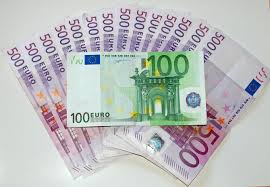Private international law, transborder investments and financial damage in a SICAV scenario
by
Javier Carrascosa González
Professor of Private International Law – University of Murcia, Spain
Catedrático de Derecho internacional privado – Universidad de Murcia
Not very popular these days, SICAV companies are nevertheless a key of the current financial system in the UE. Their activities are international by nature. These SICAV companies attract capital from many different investors with habitual residence in many different countries, both individuals and companies. Problems arise when the invesment is not as successful as it seemed to be in the beginning and the investors try to recuperate their capital sueing the potential wrongdoer. Where might they sue the tortfeasors? Which Law should govern the issue?
A judgment rendered by the French Cour de Cassation (Com.) of 7 January 2014 (text may be found in: RCDIP, 2014, pp. 432-445) gives us the opportunity to reflect on these fascinating aspects of the SICAV operations from a Private International Law perspective.
A SICAV (= «investment company with variable capital» / «société d’investissement à capital variable»), may be defined as a corporation dedicated to investments in financial assets with higher or lower risks. Its tax advantages are known, as taxes arise only when the profits are made through dividend distribution or sell shares of the SICAV company. SICAV comanies frequently have their headquarters nad registerd office in a country with low tax for companies, such as Luxembourg. The SICAV holds a portfolio (= «portfolio investments» or «financial instruments»), i.e. a collection of shares with expected profits. The investors who participate in a SICAV company are not actually holders of financial securities or shares, since such individuals are not investing directly in such securities. It is the SICAV company that invests the capital in shares or other assests. The investors, in fact, are mere shareholders of the SICAV. If the investment is successful, shareholders receive dividends and their shares in the SICAV company increase in value. If the investment fails, due to false informations or other wrong and illegal practice, the direct victim of the tort is the SICAV company. In the event of financial damage caused by fraud or deception in the context of a SICAV losses, first thing is to declare that in the vast majority of cases there is not any contract between the investor-victim and the alleged offender. This fact makes immpossible any application of any legal provision included in the Bruxelles I recast Regulation concerning consumers or consumer protection as the EJC has declared (ECJ January 28, 2015, C-375/13, Harald Kolassa vs. Barclays Bank plc, n.53).
Two differene cases may be distinguished.
First. Damage for fraudulent financial management of the SICAV. In order to determine the international jurisdicion of the courts, Art. 7.2 Bruxelles I recast (1215/2012) applies. The wrongful acts committed by an administrator of the SICAV portfolio should be considered as happened in the place where the SICAV company is based. That is the place where the administrator has acted. That is the place where the loss of the capital in question ocurred. The SICAV company is the trustee and manager of its own securities and may also be the trustee and manager of the portfolio of other investment companies as well as the trustee and manager of huge sums of money. That is the place of «causal act» when the alleged perpetrator is a manager and / or administrator of the SICAV. Moreover, in these cases, the «place of the damage» is the Member State where the capital loss, which is the Member State where the SICAV has its registerd office, the same place where its portfolio has lost value. In the event that the individual investor (= i.e. the shareholders of the SICAV) is domiciled in another Member State, he can not sue before the courts of his State because the place of the causal event and the place of damage are not to be localized in this country.
The law of Luxembourg applies to the merits of the case, as it is the law or the place in which the damage occurs (Art. 4.1 Rome II Regulation).
Second. Financial damage caused to the SICAV by third parties. The loss of value of the investments of the SICAV shareholers may also be due to acts of third parties (= no managers or directors of the SICAV). In these cases the investment made by the SICAV has not been successful and the money is lost owing to inaccurate information or other fraud conducts. The «place of the causal event» is not located in the State from which the investor transfers funds to the accounts of the SICAV, but in the State where these funds have been fraudulently used to suscribe financial securities by the SICAV. It is normally also the State where the SICAV is based. In the case of investments made from false information disseminated on the prospectus, the place of the causal event is located in the State where the proscpectus has been drafted and distributed at the beginning (ECJ January 28, 2015, C-375/13, Harald Kolassa vs. Barclays Bank plc, n.53). «Place of damage» is, in these cases where the investor has placed his capital and where that capital has subsequently been withdrawn for the final investment. In this case, what happend is, to be perfectly honest, a loss of value of the portfolio of the SICAV. In such conditions, to the extent that the SICAV is a legal person, it is the SICAV the direct victim of the damage and the investor / shareholder in the SICAV is merely an indirect victim. The investor can not sue the wrongdoer before the courts of the Member State of his domicile as the place where the damage occurred is the Member State where the capital loss occurs. In other words, the place of the damage is the Member State where the SICAV has its registerd office, same place where its portfolio is managed. The shareholders of the SICAV may sue in the courts of that State.
Same as before, the law of Luxembourg applies to the merits of the case, as it is the law or the place in which the damage occurs (Art. 4.1 Rome II Regulation).
Let’s give an example of the SICAV functioning in a scenario of a huge crossbroder investment. Company SP, based in Madrid, gets a profit of its business in Spain and decides to invest one million euro in a SICAV based in Luxembourg called LUX. Now company SP has become a shareholder of LUX. Because of some inaccurate financial information included in a report written and published in Germany by Luthor, an American analyst operating from Berlin, LUX decides to invest in some high-risk securities traded in Tokyo. All the investment is lost and SP plans to sue Luthor.
In fact, what it really happened is that the LUX shares bought by SP have lost their value. In accordance with Art. 7.2 Bruxelles I recast Regulation, company SP cannot sue Luthor in Spain, because Spain is not the place of the causal factor of the damage nor the place of the damage. Spanish courts lack internacional jurisdiction to decide the merits of the case.
Alongside this, the direct victim has not been SP but LUX. Therefore it is LUX to sue Luthor. The place of the causal event is Germany. This is the place where the report has been drafted and distributed at the beginning.
The place of the damage is the place where the SICAV portfolio lost its value. The place where the capital was lost. This place was Luxembourg, the place where the money was taken from, the place where the LUX shares decreased in value.
LUX has the choice to sue Luthor before the German courts as well as before the Luxembourg courts.
As an indirect victim of the tort (victime par ricochet) it is also possible for SP to sue Luthor. SP may use the same grounds of jurisdiction that can be activated by LUX, i.e., SP has the choice to sue Luthor before the German courts as well as before the Luxembourg courts. Spanish courts lack international jurisdicion.
In any of these two cases, the law of Luxembourg applies to the merits of the case, as it is the law or the place in which the damage occurs (Art. 4.1 Rome II Regulation).
Nothing is what it seems… So look before you leap, look before you invest ….. !!!
________________________
Javier Carrascosa González
Professor of Private International Law – University of Murcia, Spain
karras@accursio.com
Catedrático de Derecho internacional privado – Universidad de Murcia
THOUGHT: «The time to be happy is now. The place to be happy is here«.
- Breves reflexiones sobre el Reglamento 655/2014 de 15 mayo 2014 y la Orden Europea de Retención de Cuentas
- Recensión a «La distribución y el comercio paralelo en la Unión Europea»



